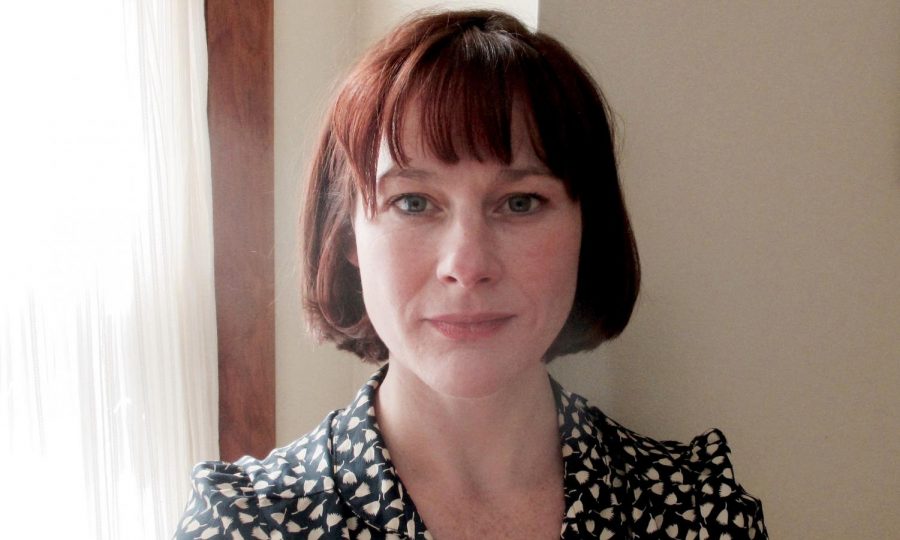Professor Alison Powell releases book, reflects on COVID-19 learning
Photo Courtesy of Oakland University
Powell has taught at Oakland University since 2014. Her new book “The Art of Perpetuation” draws inspiration from a life of movement and an innate desire to grow and make sense of the world around her.
With her own unique brand of humor and enthusiasm, Oakland University English Professor Alison Powell has been holding down literature courses and poetry workshops ever since she arrived at OU in 2014. Her new book “The Art of Perpetuation” draws inspiration from a life of movement and an innate desire to grow and make sense of the world around her.
Growing up in rural Indiana, Powell became aware and troubled by a problematic duality that exists in the midwest.
“I grew up 20 minutes away from the place that is generally referred to as the birthplace of the KKK,” Powell said. “You grow up with these contradictions, right? … a variety of unpleasant experiences, and yet at the same time parts of Indiana are beautiful. And [growing up] we just had the run of the land … it had this feeling of magic or unboundedness. It felt very romantic on one level and then the other side of that was all this really horrifying social stuff.”
For Powell, that “horrifying social stuff” included not only backwards thinking on race and religion, but also issues of gender.
“When I was growing up, I experienced mixed messages around what my femaleness was supposed to look like,” Powell said. “I was kind of a tomboy, and [at first] that was great. Then as I got older, I became a little more political … that was forcefully rejected.”
It was ultimately this discomfort that drove Powell to leave the state. In pursuit of more freedom and the opportunity to grow into the person she wanted to be, she started moving around the country following the completion of her master’s degree at Indiana University in 2005.
First Powell headed down to Missouri and started a Ph.D. program at University of Missouri. After a year there, she decided she wanted to get out of the midwest, moving first to work for a nonprofit in San Francisco before eventually going to New York to finish her Ph.D. at City University of New York.
“It was really good for me to be in a city,” Powell said. “I needed to leave … San Francisco and New York were good places for me to figure out who I was and what I wanted.”
2014 became an important year for Powell. That year, the end of her coast-to-coast journey came with the completion of her Ph.D., her award winning first poetry book “On the Desire to Levitate” was published and she moved to Michigan to become a member of OU’s English Department.
“I mean to get a job as a poet is like the dream … this is great,” Powell said. “I love talking to my students. Teaching has been where I’ve kept alive that more critical side … I feel an obligation to keep myself quick on my feet. And I get to read different kinds of texts than what I would read otherwise.”
Influenced in recent years by her new experiences as an educator and as a parent of two young children, Powell has taken her creative writing into a different genre for this new book.
Written from 2016 to 2019, “The Art of Perpetuation” is a collection of lyric essays where Powell’s voice as an artist shines through. The lyric essay form, which is more poetic than traditional non-fiction but more non-fiction than most poetry, allows her to tie her sensibilities as a poet into the fierce urgency she feels to address current affairs.
“Being able to move fast and loose within the essay form is really fun,” Powell said. “I found myself writing essays because I felt like the things I wanted to talk about were too hard to contain in a poem. I needed something new.”
This collection, which was released as a chapbook by Black Lawrence Press last October, covers a wide array of topics from her experiences with gender identity, to man-made environmental destruction, to her concerns as a parent raising children in the toxicity of our current society.
Powell is enjoying the lyric essay format and plans to continue adding to this collection, eventually publishing the entirety of the work as a full length book some time in the future. Additionally her latest collection of poems entitled “Boats in the Attic” is currently being shopped around for publication.
Admittedly, Powell’s work as a creative writer has been affected by the COVID-19 pandemic.
“[For me] writing has essentially come to a standstill,” Powell said. “Which is not the end of the world … but it is increasingly frustrating. I’m a person who needs to feel sort of invisible when writing. I need an empty space where I can write … it’s really hard to get that time.”
Her work as an educator has been similarly strained. While she had experience teaching online courses, asynchronous classes taught over video conferencing platforms like Zoom have been a difficult adjustment.
“The video conferencing is really strange,” Powell said. “I’m noticing my professorial persona is being compromised to some extent by Zoom. I think that students and professors are more downtrodden in some ways than before … we’re just all so tired of this.”
For her students, Powell sees the lack of mobility and human interaction during the pandemic as a real detriment to the creative writing process.
“One thing that I think is really interesting is the serious lack of sensory stimulation,” Powell said. “To only ever be in one to five spaces, it’s bad for your brain. All the same sensory experiences over and over again … it’s not good for writers.”
Despite the difficulties, Powell is somewhat optimistic about the pandemic as a catalyst for change in a positive direction.
“One of the things that the pandemic has done is exacerbate existing strains on social structures,” Powell said. “There’s this unevenness in people’s experiences … some people are saving money and coming out fine … others are losing family members … lost jobs … children are suffering from the lack of childcare in schools. I hope [COVID-19] will urge forward conversations about how our society does or does not take care of people.”







